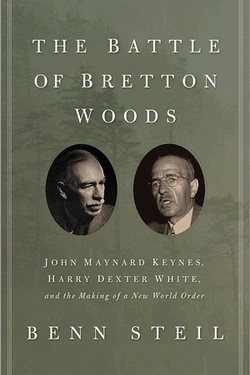
The Battle of Bretton Woods
John Maynard Keynes, Harry Dexter White, and the Making of a New World Order

- Book
- Foreign policy analyses written by CFR fellows and published by the trade presses, academic presses, or the Council on Foreign Relations Press.
Read an excerpt of The Battle of Bretton Woods.
As World War II drew to a close, representatives from forty-four nations convened in the New Hampshire town of Bretton Woods to design a stable global monetary system. Leading the discussions were John Maynard Keynes, the great economist who was there to find a place for the fading British Empire, and Harry Dexter White, a senior U.S. Treasury official. By the end of the conference, White had outmaneuvered Keynes to establish a global financial framework with the U.S. dollar firmly at its core. How did a little-known American bureaucrat sideline one of the greatest minds of the twentieth century, and how did this determine the course of the postwar world?
The Battle of Bretton Woods: John Maynard Keynes, Harry Dexter White, and the Making of a New World Order tells the story of the intertwining lives and events surrounding that historic conference. In a book the Financial Times calls "a triumph of economic and diplomatic history," author Benn Steil, CFR senior fellow and director of international economics, challenges the misconception that the conference was an amiable collaboration. He reveals that President Franklin D. Roosevelt's Treasury had an ambitious geopolitical agenda that sought to use the conference as a means to eliminate Great Britain as a rival.
Steil also offers a portrait of the complex and controversial White, revealing the motives behind White's clandestine communications with Soviet intelligence officials—to whom he was arguably more important than the famous early–Cold War spy Alger Hiss. "Everything is here: political chicanery, bureaucratic skulduggery, espionage, hard economic detail and the acid humour of men making history under pressure," writes Tony Barber, reviewer for the FT.
With calls for a new Bretton Woods following the financial crisis of 2008 and escalating currency wars, the book also offers valuable, practical lessons for policymakers today.
More on:
A Council on Foreign Relations Book
Educators: Access the Teaching Module for The Battle of Bretton Woods.
More on:
 Online Store
Online Store